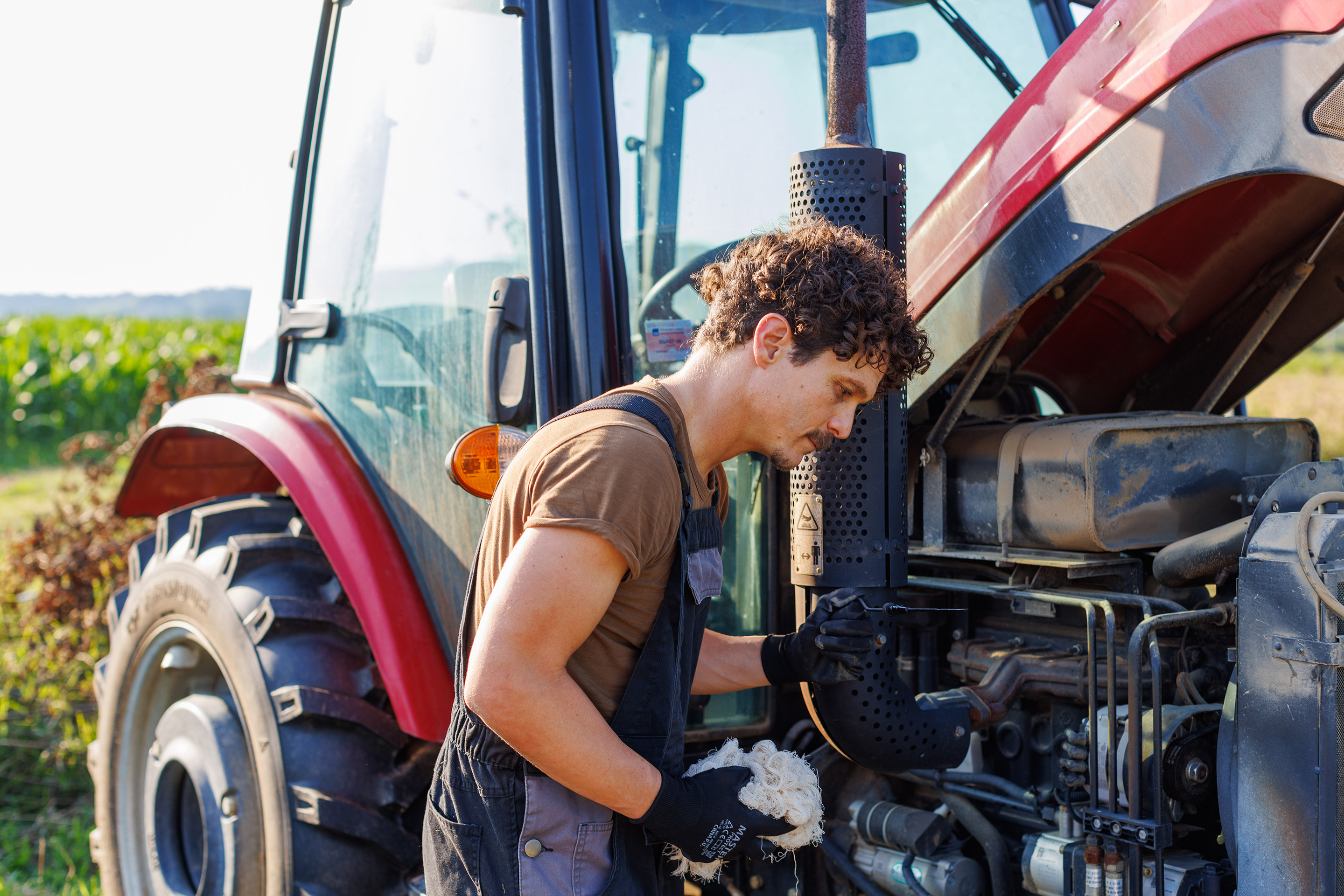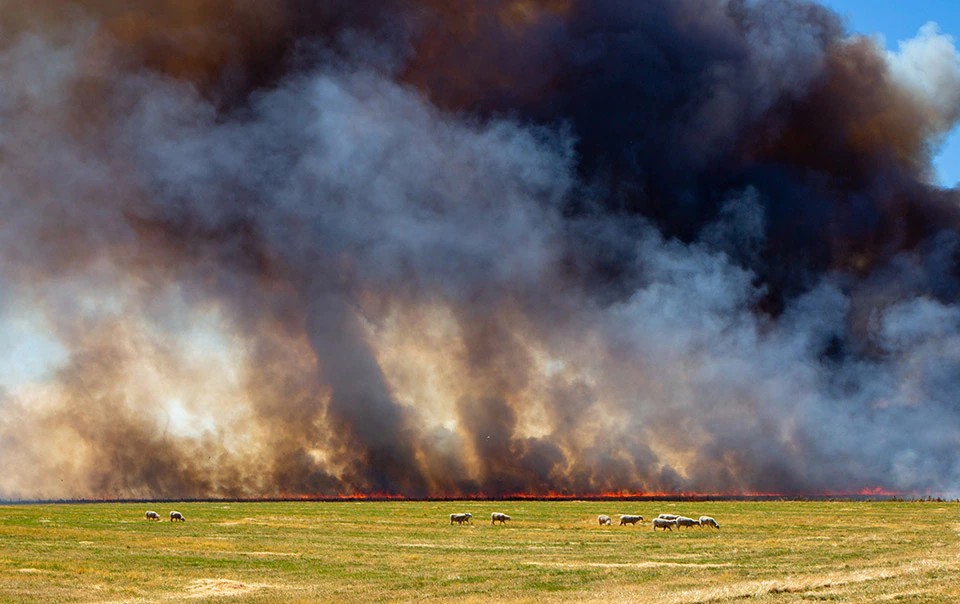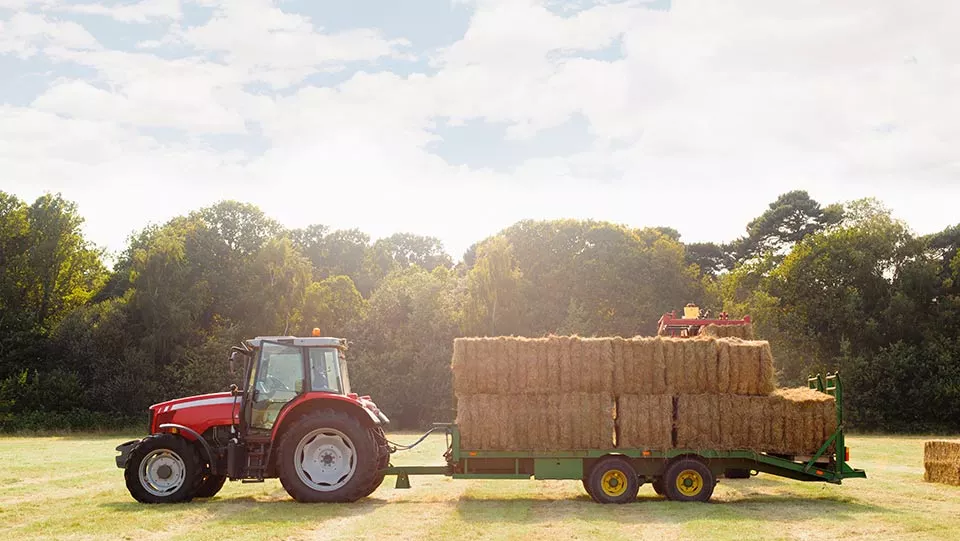8 Best Practices to Help Prevent Fires on Farms and Other Agribusinesses


From tractors and combines to fertilizer spreaders and balers, expensive agricultural equipment is essential to running farms and grower-packer facilities. Fires are a major risk that threaten to damage or destroy these critical pieces of equipment. Research shows that the risk of equipment fires may be higher than you think. In reality, fire is the second-leading cause of loss at farms, grower-packer facilities and other agribusinesses.
Having robust fire safety programs, preparedness plans and preventive maintenance programs can help reduce the likelihood of farm fires and better protect critical equipment.
Consider the following best practices for fire safety, education and mitigation that can help prevent equipment fires at your farm or agribusiness.
1. Understand the risks of fire from farm equipment.
It’s hard to think about, but imagine the implications of a tractor engulfed in flames. The risk of danger to your workers and others onsite and the disruption to your agribusiness operations and financial well-being could be devastating.
It’s important to understand the common causes of agribusiness and farm equipment fires so you’re better able to identify and proactively implement best practices. This can help you protect your valuable business property, employees and operations. Be on the lookout for:
- Poorly maintained fuel or ignition system in a machine.
- Improper or unsafe refueling practices.
- Ignition sources, from uncontrolled hot work or smoking.
- Engines overheating.
- Sparks created by friction or from the exhaust.1
2. Prevent electrical faults and leaks with regular equipment inspections and maintenance.
Many farm fires can be attributed to a lack of inspection and/or maintenance of farm equipment engines and engine compartments. Proper maintenance is key to preventing electrical faults and oil leaks that could lead to fires. Look for leaks in hydraulic and fuel systems of your combine and other farm equipment. It’s also important to inspect electrical components, such as battery terminal connections, ahead of the harvest and weekly throughout the season.
Create a comprehensive equipment maintenance schedule and inspection checklist for tractors and other essential equipment like combines and balers. And be sure to clean combustible residue from your equipment every day.
As an added precaution, have dry chemical (ABC, all class) fire-extinguishing systems on your machines.2 Proper maintenance is key to preventing electrical faults and oil leaks that could lead to fires.
3. Safely store and handle flammable materials on your farm.
Flammable materials are common at agribusinesses but can increase the risk of farm fires if mishandled.
Store agricultural chemicals in a structure with adequate ventilation, an impervious floor and a location that’s at least 100 feet away from other structures. If you have gasoline, oil, kerosene or lighter fluid on your farm, be sure to store them in approved containers with a proper label.3
Avoid storing flammable or combustible materials – like hay, straw, pesticides and fertilizer – with machinery or close to electrical equipment or a heat source.
Check the temperature of baled hay. To help avoid the potential for spontaneous combustion, you may need to disassemble stacked bales to cool the hay if the temperature reads higher than 150°F.4
4. Establish and enforce fire safety protocols.
Fire safety controls can go a long way toward helping prevent farm fires. Establish and communicate best practices and procedures such as:
- Clear storage and debris from spaces around buildings.
- Ground and bond grain handling equipment to control static electricity.
- Remove dust using a vacuum approved for dust collection.
- Shut off engines and allow them to cool before refueling.5
Additional precautions include maintaining a completely smoke-free work environment or banning smoking in higher-risk areas like barns, storage areas, tack rooms and lounges.6
5. Manage hot work activities safely.
Hot work, such as welding, cutting and grinding, can pose significant fire hazards if not managed properly. To help prevent these types of risks, consider implementing strict controls and safety measures for hot work activities, such as:
- Designate safe areas. Assign specific zones for hot work that are clear of any flammable materials to minimize fire risks.
- Qualified personnel only. Ensure that only trained and certified personnel are allowed to perform hot work tasks.
- Use protective equipment. Employ fire-resistant blankets or shields to protect surrounding areas from sparks and heat.
- Firefighting equipment readiness. Keep fire extinguishers and other firefighting tools readily available and ensure they’re in good working condition.
- Conduct thorough inspections. Perform detailed inspections of the work area before and after hot work to ensure no smoldering materials are present.
- Establish a permit system. Use a hot work permit system to enforce adherence to all safety protocols and procedures.
By adhering to these guidelines, you can significantly reduce the risk of fire incidents associated with hot work activities.
6. Develop emergency response programs.
Planning is key for reducing the risk and impact of farm fires. If a blaze occurs, you may only have a few minutes to address it and safeguard your equipment. Developing an emergency action plan can help you prepare for a farm fire and protect your workers, animals and investments.7
A well-documented emergency action and response plan can help guide everyone at your agribusiness on what to do if there’s a farm fire. Make it comprehensive and easy to follow, and consider including protective measures like:
- Preplanning with the local fire department and asking about safety guidelines.
- Establishing and familiarizing everyone with evacuation routes.
- Developing and following chemical spill control procedures.8
- Knowing how and when to use different types of fire extinguishers.
- Implementing equipment shutdown procedures.
- Ensuring that everyone understands what to do if an alarm sounds.
- Maintaining a list of emergency contacts.
Ideally, you should revise your emergency action and response plan anytime you notice a shortcoming or add a new risk. And remember to review and update it at least once per year.9
7. Train farm workers on fire prevention.
Effective farm fire prevention starts with well-informed and thoughtfully trained workers. The style of training can vary. You may choose to offer formal classroom training or one-on-one instruction, depending on which works best for your farm and workers. Either way, you’ll want to provide training that’s detailed, clear and in a language your workers understand (some may not be fluent in English).
To help ensure that your workers stay prepared, conduct training and reviews on a regular basis.10
8. Install and maintain fire detection and suppression systems at your agribusiness.
Early detection and suppression of a farm fire can help you respond to a blaze before it causes major losses. Install automatic fire sprinkler systems and smoke and heat detection systems in all buildings. Keep proper fire extinguishers available and accessible on your equipment and at farm facilities. Inspect and maintain your extinguishers, fire detection systems and sprinklers regularly – according to NFPA inspection, testing and maintenance recommendations – to ensure they’re consistently in good working order.11
Help protect your agribusiness from losses due to farm fires.
A comprehensive approach to fire safety and equipment maintenance can help your agribusiness prevent a farm fire. By understanding the risks, you can help safeguard your valuable equipment and business operations.
If a farm fire or other business interruption occurs, insurance can help you weather the losses. Contact your insurance professional or a Travelers agent to learn how we can help you protect your agribusiness.
Sources
1, 7 https://icash.public-health.uiowa.edu/wp-content/uploads/2015/12/Fire-Safety-tri-fold-brochure-FINAL.pdf
2, 3, 4, 6, 11 https://esc.rutgers.edu/fact_sheet/fire-prevention-and-safety-measures-around-the-farm/
5 https://agsci.oregonstate.edu/mycas/section-4-%E2%80%93-agricultural-safety-rules/chapter-4-farm-fuel-safety
8, 9, 10 https://www.osha.gov/sites/default/files/publications/OSHA3870.pdf



